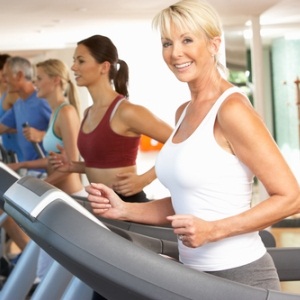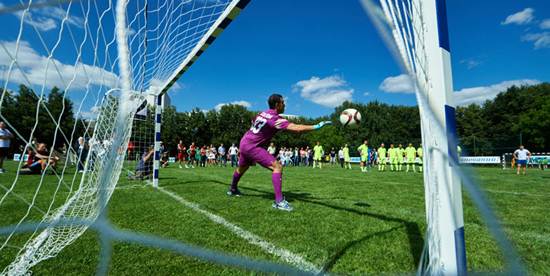
According to the WHO, experience and scientific evidence show that regular participation in appropriate physical activity and sport provides people of both sexes and all ages and conditions, including persons with disabilities, with a wide range of physical, social and mental health benefits.
Physical activity and sport support strategies to improve diet and discourage the use of tobacco, alcohol and drugs. As well, physical activity and sport help reduce violence, enhance functional capacity, and promote social interaction and integration.
Sport generates health benefits in two primary ways — through direct participation in sport itself, and through the use of participatory and spectator sport as a platform for communication, education and social mobilization. Well-designed sport for health initiatives often work on both levels.
Increasing physical activity levels
Because physical inactivity is a primary risk factor driving the global increase in chronic disease, sport can play a critical role in slowing the spread of chronic diseases, reducing their social and economic burden, and saving lives. While physical activity includes a broader range of activities than sport alone (people can be physically active
at work or engaged in domestic tasks at home), direct participation in sport is one of the most enjoyable, and therefore powerful, means of motivating and mobilizing people to become physically active.
Everything you need to know about weight loss through sport
In addition to enhancing overall physical fitness, regular physical activity, active play and sports can have a positive impact on other major health risk factors, such as high blood pressure, high cholesterol, obesity, tobacco use and stress.

Fostering social connection
A powerful social connector, sport can bring people together, expand and strengthen social ties and networks, link people to resources and provide them with a sense of belonging.
These social relationships are a fundamental determinant of health. Sport can also be used to reduce the social stigma experienced by marginalized groups, such as persons with disabilities, people with HIV and AIDS, and former child combatants.
By engaging these individuals in sport activities with other community members, sport creates a shared space and experience that helps break down negative perceptions and enables people to focus on what they have in common.
Promoting healthy attitudes and behaviours
In disadvantaged communities and populations, where people are often defined in terms of their needs and deficits, sport provides a powerful counter-balance to these perceptions.
Participating in sport draws on people’s strengths and assets — energy, enthusiasm, natural and acquired skills, the desire to excel — and the universal capacity for fun and enjoyment.
In this way, well-designed sport programs that are inclusive, fair, fun and promote excellence at all skill levels — help to empower participants and build self-esteem.
Self-esteem can be defined as a person’s overall self-appraisal and feeling of self-worth. Self-esteem is critical to health because it motivates self-care and can contribute to healthy lifestyle behaviours. The acquisition of sport skills and life skills, the acceptance and friendship of others, the attention and guidance of coaches, and the examples set by them and other positive sport role models, all encourage sport participants to believe in themselves, in others, and in their future.
For individuals deeply affected by poverty, disease, disability or conflict, the development of self-esteem can be a profound psychological shift that enables and motivates them to adopt healthier lifestyle behaviours.
Sport as a platform for communication, education and social mobilization
Sport can play a valuable role as a communication, education and social mobilization vehicle. Sport’s entertainment appeal, amplified by global telecommunications, has made it one of the most powerful communication platforms in the world. By engaging and mobilizing high-profile elite athletes and professional sport clubs and federations, this communication’s power can be harnessed to deliver critical health information and messages, to model healthy lifestyle behaviours, and to marshal resources for health initiatives.
At the community level, popular sport events offer local platforms to deliver health information and education, and can serve as a starting point for community mobilization to support health promotion, vaccination, and disease prevention and control efforts.
Source :- UN.org

Leave a Reply